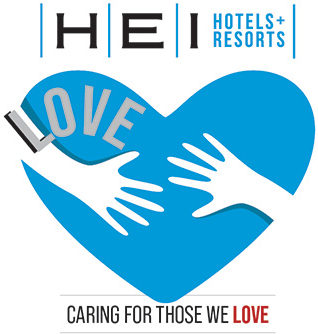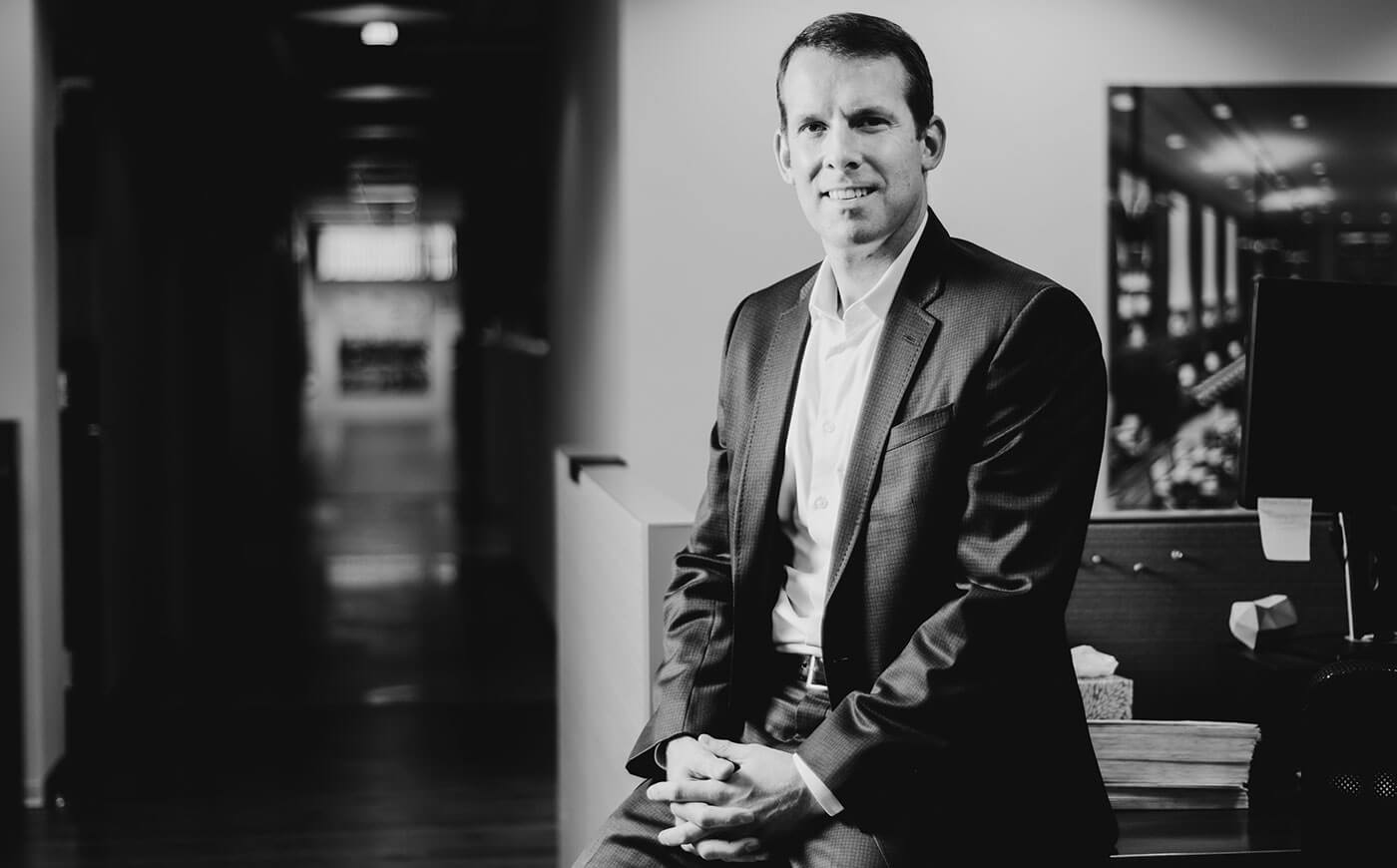Necessity is the mother of invention. How many times over the past year have we all heard that expression?
Without a doubt, the once-in-a-generation impacts of the pandemic and other events of the past year have caused all of us within the industry to reinvent our businesses, from daily operations to revenue streams to our customer base and business model itself. And as the dust settles, we can start to see how each company’s design and execution of their new world strategies have succeeded or failed.
 Over the past year we have built a number of extraordinary programs directed around the following key tenets: (1) aggressively protecting owner cash (particularly in the lowest occupancy months of the pandemic), (2) permanently reducing fixed costs through property and enterprise organizational design, (3) establishing sustainable revenue growth by owning the submarket (as opposed to just the comp set), (4) profoundly reinventing the sales process against permanent market changes in a way that will forever increase our group share at a lower cost, and finally (5) caring for our most valuable asset – our associates – through an unbridled commitment to provide tools, resources, career advancement opportunities, and most significantly our pioneering new HEI Loves culture, which you will be sure to hear more about in future notes from our organization.
Over the past year we have built a number of extraordinary programs directed around the following key tenets: (1) aggressively protecting owner cash (particularly in the lowest occupancy months of the pandemic), (2) permanently reducing fixed costs through property and enterprise organizational design, (3) establishing sustainable revenue growth by owning the submarket (as opposed to just the comp set), (4) profoundly reinventing the sales process against permanent market changes in a way that will forever increase our group share at a lower cost, and finally (5) caring for our most valuable asset – our associates – through an unbridled commitment to provide tools, resources, career advancement opportunities, and most significantly our pioneering new HEI Loves culture, which you will be sure to hear more about in future notes from our organization.
These strategies are diverse, targeting both top-line and bottom-line improvements, and collectively driven towards improved profitability and positive associate culture. Yet despite the diversity (and you’ll soon see, success) of these strategies and our constant formal and informal communication to our ownership community, when we ask our owners what we’re known for the answer comes back time and again: “You’re good at cost control.” And yes, there is real truth to this, thanks to our real-time measurement tools, our culture of constant flex and attention to detail, our revolutionary enterprise programs, and of course our hard-working property teams. But to reduce our value as an operator down to only expense management is to look past some of our most important and well-serving attributes, such as associate culture, lifestyle program development, asset preservation, and revenue enhancement. For example, did you know that HEI has gained market share in nine of the past eleven years, dating all the way back to 2010? This is an incredible streak for a portfolio of our size, which can only be accomplished with constant innovation and reinvention of strategy, not to mention sharp execution.
My objective today is to share some of the results we have achieved from our new programs in an effort to not only give you comfort that these strategies are working, but also address the concern we hear occasionally: that we are too cost-focused. To the contrary, our relentless focus and strength to drive long-term value through the top line has been exceptional as well.
Sales and Revenue
 Over the past year, you have heard us repeatedly tout the innovative ways in which we’ve leveraged new, enterprise-level programs to enhance the capabilities of our local sales and revenue management teams. These programs were borne out of the necessity to drive sales and maximize revenue opportunities despite heavily depleted sales and revenue teams caused by the pandemic.
Over the past year, you have heard us repeatedly tout the innovative ways in which we’ve leveraged new, enterprise-level programs to enhance the capabilities of our local sales and revenue management teams. These programs were borne out of the necessity to drive sales and maximize revenue opportunities despite heavily depleted sales and revenue teams caused by the pandemic.
Perhaps the most significant revenue performance measure we introduced during the pandemic was not a new program at all, but rather an enhancement of an existing one. For over seven years, we have made centralized revenue and sales programs available primarily to the owners of our smaller hotels. But to preserve cash flow, reduce fixed costs, and maximize revenue opportunity (three of the key objectives), we modified our programs to make them more feasible for larger and more sophisticated revenue management hotels. As a reminder, these optional programs supplant some or all of the onsite revenue management, group, and catering sales teams by managing the discipline remotely via shared or dedicated resources that vary depending on the size and complexity of the hotel.
But while this program, like many others, appears on the surface to be exclusively a cost-saving mechanism, the fact is that our ability to execute on rapidly changing strategies is greatly enhanced through the centralized model. This became apparent even in early 2020, as with meager revenues trickling in we still saw rapid share improvements against the market. Our centralized revenue results have been so compelling that over 90% of those hotels that opted into the centralized sales and revenue programs during the pandemic have remained, even now nearly eighteen months later. Moreover, nearly 60% of our hotels participate wholly or partially in one of our centralized sales or revenue management programs. And even with that participation (and perhaps because of it) HEI’s total market share YTD in 2021 is 5.0 points higher than YTD 2019. So regardless of the fixed cost savings from our programs, this means that our average hotel will generate over $1.1mm in additional revenues in a fully stabilized year. At an attractive rooms margin of 74% that’s $840k of incremental profits for our average hotel due to the successful execution of our revenue management strategies. At an 8% cap rate, that’s over $10mm in real estate value for each hotel at a time when we need it most.
A second new world strategy impacting our sales environment is the introduction of our Rapid Lead Response Team. This program, launched last summer, now fields every inbound electronic lead across the organization, provides a nearly immediate response to the customer, and enters the lead into the appropriate sales system. Thanks to the immediate response, this program boosts closure rates and allows our on-the-ground sales teams to focus exclusively on closing business. Overall, our closure rates are up 4.9 points to the same time in 2019. This in turn has driven an increase in group share of 7.4% to 2019 – all at a 21% lower cost for every definite room night. Now while group business is not at 2019 levels, this program is 100% scalable and as group business returns the results will continue. Applied to 2019 volumes, this translates to $560k in incremental profits per year for our average hotel – approximately half from top-line improvements from our improved group booking efficiency and half from expense improvements in our operating model. Applying the same cap rate and profit assumptions, our results here add another $7mm in real estate value for our average hotel (and since such a small contribution of revenues YTD are due to group, this value increase is almost entirely incremental to the $10mm noted above).
In summary, although our new world sales and revenue programs may appear to be designed to save money, they are actually more so contributors to top-line results that are and will continue to drive significant real estate value for years to come.
Compliance
Another noteworthy change we made over the past year is to bolster our enterprise-level finance department. Our focus here has been to carry more of each property’s daily burden to directly decrease fixed departmental costs as occupancies stabilize. But once again, our compliance efforts are focused on more than just cost savings. In a department as critical as finance, it is neither wise nor acceptable to reduce expense at the risk of compliance to accounting standards or financial controls. But I am pleased to report some significant and important success here. Our average compliance score in our Internal Audit program through Q2 is 81.8, which compares quite favorably to our 2019 score of 72.2. Meanwhile, our average Balance Sheet compliance score is 84.3 as compared to 85.6 in 2019 – a slight but insignificant drop. What this means is that we are succeeding in our program redesign because we can continue to provide you the same financial security that you require, but permanently at a lower cost (which of course contributes to increased asset value). And for those of you who are opted into our centralized finance program, rest assured that our compliance on these metrics is comparable within the centralized hotels as well.
In a similar way, our engineering systems and audit program (which was one of the few services within our HEI Service Platform that went up in cost in 2021) ensures that HEI is still protecting your real estate. Even with smaller on-property engineering teams, the average score on our engineering audit YTD in 2021 is up nearly 2% to 2019. So, despite our staff reductions, the teams have maintained your real estate as they always have. Again, this continued compliance is critical to us as we redesign our enterprise programs.
Additional Enterprise Programs
Two more enterprise-level programs that we restructured during the pandemic include reputation management and food and beverage promotion and support. While it’s difficult to demonstrate a reduction in property fixed costs as a direct result of these programs, we can absolutely show meaningful value here as well. Our reputation management team has increased our properties’ popularity rank percentile by over three points to the same time in 2019, which translates to approximately three TripAdvisor spots higher for each hotel.
 Meanwhile, our F&B programs have demonstrated extraordinary success in driving profitability through the challenges of the new operating expectations. If June is any indication, we are well-positioned for continued success as these revenues grow; our June F&B department profitability was 39.2% – over three points higher than in June of 2019 (despite just over half the total revenue). That success translates to another $200k per hotel per year and $2.5mm in real estate value for the average hotel (on a stabilized basis) thanks to the increased profitability. And these results are before we even add in the results of the top-line growth we expect from our programs once F&B activity returns to normal.
Meanwhile, our F&B programs have demonstrated extraordinary success in driving profitability through the challenges of the new operating expectations. If June is any indication, we are well-positioned for continued success as these revenues grow; our June F&B department profitability was 39.2% – over three points higher than in June of 2019 (despite just over half the total revenue). That success translates to another $200k per hotel per year and $2.5mm in real estate value for the average hotel (on a stabilized basis) thanks to the increased profitability. And these results are before we even add in the results of the top-line growth we expect from our programs once F&B activity returns to normal.
Creating Value is What We Do
As a data-driven organization, we regularly monitor every enterprise-level program to rigorously review the key metrics of that program or service. No program we design is exempt from our own evaluation and critique. Instead, it is exactly through quantifiable measurement that we can ensure the value is there. And while that review has identified opportunity within some components of our programs, I was compelled to share the results we have achieved in 2020 and the first half of 2021.
As it relates to our ownership community, Ted Darnall said it this way in his last note: “our ability to deliver superior returns for our owners is who we are.” Today I expanded on that comment by showing how our recent results indicate that we have created nearly $20mm in real estate value on average for every hotel within our portfolio. This value increase has been based purely on the changes we made to our enterprise and centralized programs. Although you may hesitate to believe this value creation is fully sustainable, even if you choose to discount this considerably – by fifty or even seventy-five percent – what remains is still incredible value developed through our partnership. It is remarkable to see that in June 2021 our profit margin already nearly equaled that of our best pre-pandemic year. What is even more remarkable here is that the achievement occurred despite less than 60% the total revenue.
In summary, we are undoubtedly succeeding in our quest to emerge from the pandemic as a stronger organization, built to efficiently and effectively deliver value for you as our owners better than before, and in ways our competition never will. We remain grateful for your support and partnership and are excited for the months and years ahead.

Dan Walworth, Chief Compliance and Strategy Officer

